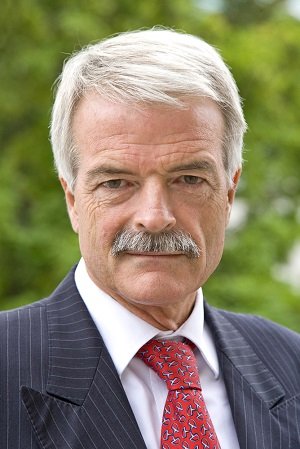Healthcare in Createch 2018 showcases technology & services supporting better clinical decision-making
February 02, 2018 | Friday | Interviews
The UK’s Department for International Trade (DIT) will hold the India – UK Createch Summit in Mumbai on 6th Feb. This is first-of-its-kind conference that will celebrate and explore the convergence of creativity and technology – Createch – and the innovations produced by its application across a range of sectors. Healthcare is one of the important sectors among them.
Professor Sir Malcolm Grant CBE, Chairman, National Health Service (NHS), England
As a prelude to Createch Summit, Professor Sir Malcolm Grant CBE, the Chairman of National Health Service (NHS), England, speaks to BioSpectrum. NHS, which is turning 70 years old in July 2018, is an executive non-departmental public body of the Department of Health, which oversees budget, planning, delivery and day-to—day operation of the commissioning side of the NHS. Sir Malcolm is also Chancellor of the University of York, and immediate past President and Provost of UCL (University College London) from 2003-2013. He has served as Chair of the Local Government Commission for England, of the Agriculture and Environmental Biotechnology Commission and the Russell Group. He is currently a trustee of Somerset House, a director of Genomics England Ltd and a UK Business Ambassador.
What opportunities are being offered to the healthcare and life sciences industry in India through this summit?
We are excited by the opportunity to showcase a diverse range of some of the leading innovations from the UK to the audience in India to create collaboration which could significantly enhance health care delivery at different levels. The NHS has always embraced innovation and this remains the case as we mark its 70th anniversary this year.
For instance here in India from the UK is Ada Health, an artificial intelligence (AI)-driven app which allows patients to self-diagnose better; and Advanced, which provides systems which have been used for many years in the UK in offering unscheduled care in person or over the telephone. Other examples of innovative digital health technology represented on this trip, include Proximie which uses augmented reality to better collaborate between clinicians and train them remotely; Oxsight which uses smart glasses to improve the vision of people with significant sight loss; and Visulytix which has developed AI-based analysis of ophthalmology images.
We also have representatives from organisations delivering world class hospital services under the UK’s National Health Service including The Christie which is pioneering cancer care including with upcoming developments around proton beam therapy; Liverpool Heart and Chest Hospital which is specialist in cardiothoracic robotic surgery and The Royal Free hospital which is involved in pioneering work in Genomics, AI (in collaboration with DeepMind – a leader in artificial intelligence research) and virtual services.
Since innovation takes many forms, we have included in the delegation, award winning architects BDP, joint replacement specialists JRI Orthopaedics, waste management innovators Vernacare and HBS UK who offer advanced consultancy services around delivery of acute services.
Is Createch 2018 promoting the use of consumer-centric healthcare devices and initiatives?
The healthcare strand of Createch 2018 showcases patient focused solutions and services as well as technology and services aimed at improving operational efficiency, safety and in supporting better clinical decision-making.
What are your views on the increasing use of artificial intelligence in the healthcare sector?
It is an exciting area with great potential to support clinicians in making better decisions and empowering patients to take greater charge of their health. The challenge to the acceptance of these solutions is going to lie in the level of trust that people will place on them. We are at a stage where people are cautiously optimistic. The acute sector is looking at more specialist applications of AI, while the patient facing applications tend to be more in the general practice area.
In the UK, the design and development of AI-based systems pays great attention to the quality of the knowledge and evidence base they incorporate as well as their analytical capability and the way users interact with them. Where the evidence suggests they can outperform humans, it is a clear cut case in favour of their use.
The use of AI could also drive forward personalised medicine by analysing genomic data to suggest the most effective medication or treatment pathways, generating better outcomes at lower costs.
The e-commerce business is booming these days in every segment. Will Createch 2018 be emphasising on the upward movement of the growing online healthcare services?
Certainly, for instance in the case of the patient-facing AI solution mentioned earlier (Ada Health) although it is not the only area in which we are showcasing the UK’s expertise.
What potential do you foresee in revolutionizing the healthcare technologies with blockchain?
We are currently exploring how blockchain could change the way patient data is stored and accessed such that data security is enhanced significantly. It could also allow patients to select who they want to give access to their data and for what purpose.
Although majority of consumers are willing to receive care from advanced healthcare technologies such AI & robotics, do you think lack of human element can pose as a major challenge?
We have already seen a shift to more digital interaction for social purposes as well as access to other essential services such as banking and this will only grow as long as the underlying infrastructure can handle the load. I am excited by the potential for technology to achieve higher levels of health care and quality of life in this regard.
At the same time, patients need to know they can see a human being if needed and to know that they can share the same information with them as they have online. Online services need to be one of several choices operating as part of an overall system or pathway of healthcare, not work in isolation.









